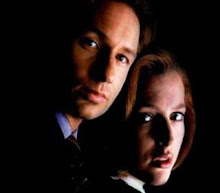Roadside Crosses by Jeffery Deaver
I'm the first to admit it - I'm a Deaver junkie. I think I've read most, if not all, of his books. While Roadside Crosses was a good book in general, it was by far not his best work. Kathryn Dance is Deaver's latest leading lady. She studies body language and reminds me a bit of Thomas Jane (The Mentalist). Interestingly, she also works for California Bureau of Investigation (CBI). Hmmmmm. Regardless, Roadside Crosses was a big page turner. It takes place right after the last Dance book, The Sleeping Doll, and I had trouble remembering all of the details from the previous case. In the current case Kathryn is chasing a computer wiz that she suspects is a young boy obsessed with MMPORPGs. Dance gets some help from Prof Jonathan Boling. I think Deaver wrote the book in part to bring attention to all of the online world politics and gain some respect from a new group of readers. He centers the interrogation around the blogger, James Chilton. Some of the twists and plot devices fall a bit flat and often the political messages are anything, but subtle. Even Kathryn seems a bit too liberal for a CBI agent at times. I don't disagree in the least with Dance's opinions about Chilton's right to blog, but I don't think Dance as a CBI agent would be quite so liberal. Overall, it was still a fun ride, but the plot was more contrived and I saw the classic 'Deaver twist' too far ahead. I'm still enjoying Dance though and I hope he sticks with her.

